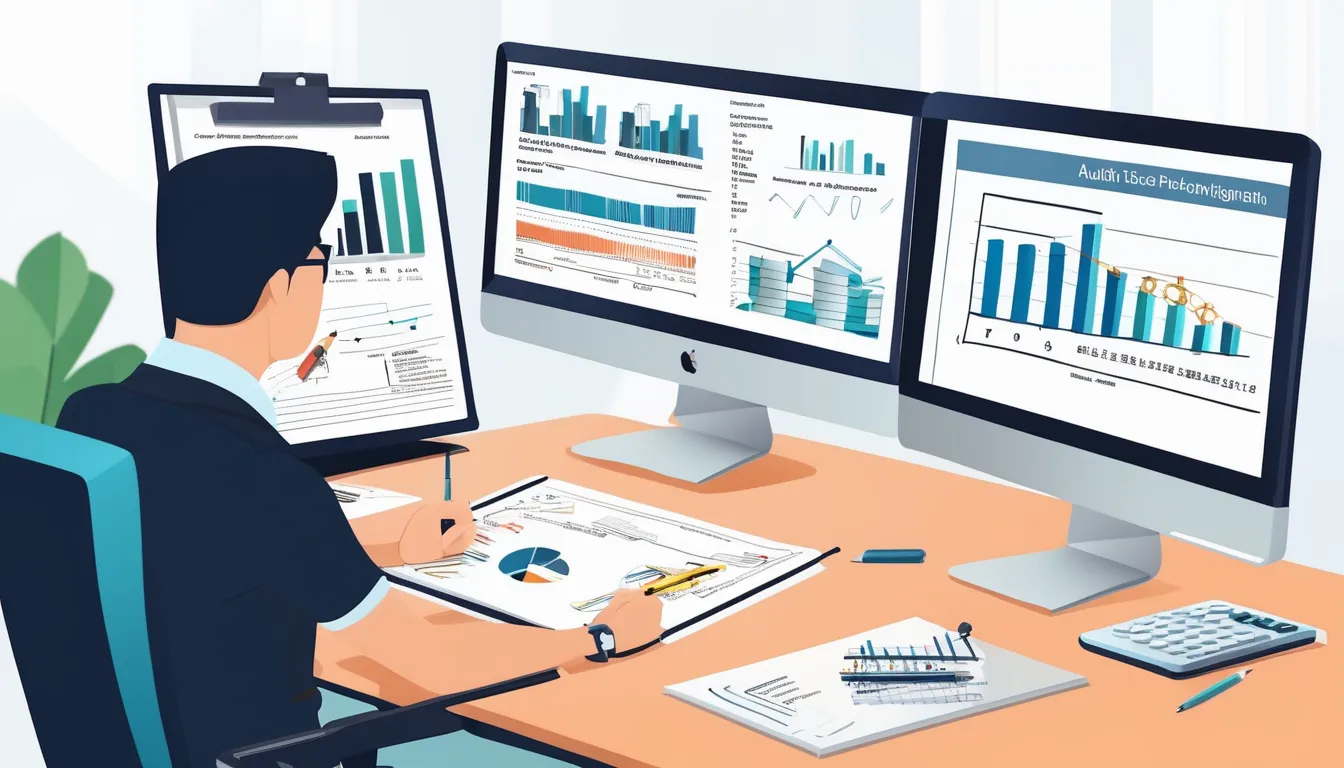In today’s fast-paced environment, you can’t afford to overlook the role of technology in maximizing efficiency within audit services. By integrating tools like audit management software and data analytics, you’re not just automating repetitive tasks; you’re also gaining insights that can reshape your approach. Consider how cloud-based platforms could enhance collaboration among your team, or how AI might streamline your decision-making process. As you explore these advancements, think about the potential challenges and opportunities that lie ahead—what’s next for the future of audit technology?
Importance of Technology in Auditing
In today’s fast-paced business environment, leveraging technology in auditing is crucial for enhancing accuracy and efficiency. As you navigate through your auditing processes, you’ll find that technology can streamline tasks that once took hours or even days. Automating repetitive functions not only saves time but also reduces the likelihood of human error, allowing you to focus on more complex analyses.
Implementing technology in your audit practice enables you to access real-time data, which enhances your decision-making capabilities. By using data analytics tools, you can identify trends, anomalies, and potential risks more effectively than traditional methods allow. This proactive approach not only improves your audit quality but also adds value to your clients.
Moreover, technology fosters better collaboration among audit teams. Cloud-based platforms allow you to share and access documents from anywhere, facilitating seamless communication and ensuring everyone’s on the same page.
Embracing technology means you’re not just keeping up with industry standards; you’re setting them. Ultimately, integrating these technological advancements into your auditing processes can lead to more insightful reports, satisfied clients, and a more efficient workflow.
Don’t underestimate the importance of technology—it’s your ally in achieving excellence in auditing.
Key Tools for Audit Automation
Embracing technology opens the door to a variety of key tools that can significantly enhance audit automation. One of the most impactful tools is audit management software, which streamlines the entire audit process. It helps you plan, execute, and monitor audits more efficiently, reducing manual tasks and minimizing errors.
Another essential tool is data analytics software. This allows you to analyze large volumes of data quickly, identifying trends and anomalies that could indicate risks or areas for improvement. By automating data collection and analysis, you can focus more on interpreting results and providing strategic insights.
Collaboration tools also play a crucial role in audit automation. They enable real-time communication among team members and clients, enhancing transparency and reducing delays. When everyone’s on the same page, you’ll find that audits progress more smoothly.
Finally, robotic process automation (RPA) can automate repetitive tasks, such as data entry and report generation. By implementing RPA, you free up valuable time for your team to concentrate on higher-level analysis and decision-making.
Utilizing these key tools won’t only increase your efficiency but also improve the quality of your audit services.
Enhancing Data Analysis Capabilities
Often, organizations struggle to make the most of their data due to inadequate analysis capabilities. To enhance these capabilities, you need to leverage modern data analysis tools that allow for real-time insights and efficient processing.
Implementing advanced analytics software can help you uncover patterns and trends that traditional methods might miss.
Consider adopting machine learning algorithms that automate data processing and provide predictive insights. This not only saves you time but also improves accuracy, allowing you to make informed decisions quickly.
Additionally, data visualization tools can transform complex datasets into easily digestible dashboards, enabling your team to grasp key information at a glance.
Don’t forget about integrating your data sources. By consolidating information from various platforms, you can create a comprehensive view of your operations.
This holistic approach enhances your ability to analyze data effectively and derive actionable insights.
Streamlining Communication and Collaboration
Effective communication and collaboration are vital for maximizing efficiency in audit firm singapore services. You need to ensure that everyone involved in the audit process is on the same page. By leveraging technology, you can streamline communication channels, making it easier to share information and updates.
Tools like instant messaging, project management software, and cloud-based document sharing allow your team to collaborate in real time, reducing misunderstandings and delays.
Utilizing video conferencing tools can also enhance your meetings, allowing you to connect with team members or clients regardless of location. This way, you can discuss findings, clarify questions, and make decisions swiftly.
Additionally, adopting a centralized platform for all audit-related documents ensures that everyone has access to the latest information, which further minimizes confusion.
Encouraging open lines of communication fosters a culture of transparency and accountability. It’s essential to establish clear expectations and roles within your team, so everyone knows their responsibilities.
Future Trends in Audit Technology
As the audit landscape rapidly evolves, staying ahead of future trends in audit technology is crucial for firms aiming to enhance their services. You need to embrace innovations that can streamline processes and improve accuracy.
Here are some key trends to consider:
- Artificial Intelligence (AI): AI will automate repetitive tasks, allowing auditors to focus on analysis and strategy.
- Blockchain Technology: This will enhance transparency and security in transactions, making audits more reliable.
- Data Analytics: Advanced analytics will enable you to uncover insights from vast datasets, improving decision-making.
- Cloud Computing: Storing audit data in the cloud enhances accessibility and facilitates real-time collaboration among teams.
- Robotic Process Automation (RPA): RPA can handle routine tasks quickly, reducing errors and freeing up time for value-added activities.
Conclusion
Incorporating technology into your audit services isn’t just a trend; it’s essential for maximizing efficiency. By embracing tools like audit management software and data analytics, you can automate tasks and enhance data analysis. Real-time communication platforms ensure your team stays connected, while AI and automation reduce errors and allow you to focus on strategic decisions. As audit technology continues to evolve, staying ahead of the curve will position you for success and improve the quality of your services.


